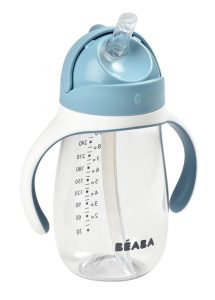Breastfeeding is widely recognized as the optimal source of nutrition for newborns and infants. However, there are situations where formula feeding becomes necessary or preferred. This article explores some potential disadvantages of bottle feeding compared to breastfeeding.
Important Note: The decision of how to feed your baby is a personal one. This article is intended to provide information to help you make an informed choice in consultation with your doctor or pediatrician.
Nutritional Differences
Breast milk is a complete food source specifically designed to meet a baby’s nutritional needs. It contains essential antibodies that help protect your baby from infections and illnesses. Formula, while a nutritious alternative, differs from breast milk in some key ways:
Immune Benefits:
Breast milk contains antibodies passed from mother to baby, which help fight illness and infection. Formula lacks these antibodies.
Nutrient Composition:
Breast milk’s nutrient composition changes over time to meet your baby’s growing needs. Formula provides consistent nutrition but may not perfectly match a baby’s specific needs at each stage.
Digestion:
Breast milk is easier for babies to digest than formula. This is because breast milk contains enzymes and live bacteria that aid digestion.

Feeding Difficulties
Bottle feeding can sometimes lead to feeding difficulties compared to breastfeeding. Here’s why:
-
Overfeeding: Bottle feeding can make it easier to overfeed a baby. Unlike breastfeeding, where babies control how much they eat, caregivers determine the amount of formula offered in a bottle.
-
Pace Feeding Challenges: Babies have natural hunger and fullness cues. Breastfeeding allows babies to regulate their intake based on these cues. Bottle feeding can make it more challenging to follow a baby’s cues.
-
Gas and Fussiness: Bottle feeding can sometimes lead to increased gas and fussiness in babies. This might be due to swallowing air while feeding.
Tips to Minimize Feeding Difficulties
If you choose to formula feed, here are some tips to minimize feeding difficulties:
-
Pace feeding: Offer formula in smaller amounts more frequently, mimicking breastfeeding patterns and allowing your baby to pace themselves.
-
Burping frequently: Burp your baby throughout the feeding and at the end to help release swallowed air.
-
Pay attention to cues: Watch your baby’s hunger and fullness cues. Stop feeding when your baby shows signs of being full.

Bonding and Development
Breastfeeding is often seen as promoting a strong bond between mother and baby. Skin-to-skin contact during breastfeeding can be calming and comforting for both. Here’s how bottle feeding might differ:
-
Skin-to-Skin Contact: Breastfeeding allows for skin-to-skin contact, which can promote bonding and emotional well-being for both mother and baby. Bottle feeding offers less opportunity for this type of contact.
-
Developmental Benefits: Suckling on the breast can help with a baby’s jaw development and facial muscles. Bottle feeding doesn’t provide the same type of stimulation.
Practical Considerations
There are some practical considerations when comparing breastfeeding and bottle feeding:
-
Cost: Breastfeeding is generally free. Formula and bottle-feeding supplies can add up in cost over time.
-
Convenience: Bottle feeding can offer more convenience and flexibility for caregivers. Formula can be stored and prepared in advance, allowing for easier sharing of feeding responsibilities.
-
Lifestyle: Certain lifestyles or medical conditions might make breastfeeding difficult or impossible. Formula feeding provides a safe and effective alternative in these situations.
The decision of how to feed your baby is a personal one. Both breastfeeding and formula feeding can provide adequate nutrition for your baby. By understanding the potential disadvantages of bottle feeding, you can make an informed choice based on your individual circumstances and priorities. Discuss all your options with your doctor or pediatrician to find the best approach for you and your baby.

Additional Considerations
There are other factors to consider when thinking about disadvantages of bottle feeding:
-
Time Commitment: While formula feeding can offer flexibility, it can also be time-consuming. Formula needs to be measured, prepared at the correct temperature, and bottles need to be sterilized.
-
Travel: Traveling with a breastfed baby requires minimal planning for feedings. Bottle feeding can require bringing additional supplies and planning for sterilizing bottles or finding hot water for formula preparation.
-
Social Stigma: In some cultures or social circles, there might be a stigma against bottle feeding. This can be discouraging for mothers who choose to formula feed.
The decision of how to feed your baby is a personal one. There is no right or wrong answer, and both breastfeeding and formula feeding can provide adequate nutrition for your baby. By understanding the potential disadvantages of bottle feeding, you can make an informed choice based on your individual circumstances and priorities. Discuss all your options with your doctor or pediatrician to find the best approach for you and your baby.

Combination Feeding
Some parents choose to combine breastfeeding and formula feeding. This approach is called combination feeding and can be a good option for some families. Here are some things to consider if you’re thinking about combination feeding:
-
Benefits: Combination feeding can offer some of the benefits of both breastfeeding and formula feeding. For example, you might breastfeed some of the time and use formula to supplement.
-
Challenges: Combination feeding can also present some challenges. It can take more time and planning compared to exclusive breastfeeding or formula feeding. Additionally, establishing a milk supply can be more difficult if you don’t breastfeed as frequently.
-
Talk to your doctor: If you’re considering combination feeding, talk to your doctor or lactation consultant. They can help you create a plan that meets your baby’s needs and your individual circumstances.

Long-Term Health Considerations
While breast milk and formula both provide essential nutrients for babies, some studies suggest potential differences in long-term health outcomes. Here’s a brief overview, but it’s important to consult with a medical professional for the latest research and personalized advice:
-
Immune function: Breastfeeding may offer some advantages in terms of reducing the risk of infections and illnesses in babies. Breast milk contains antibodies passed from mother to baby, which can help boost the baby’s immune system.
-
Allergies: Some studies suggest a possible link between formula feeding and an increased risk of allergies in babies. However, more research is needed to understand this connection fully.
-
Weight gain: Bottle-fed babies may be at slightly higher risk of overweight or obesity later in childhood. This might be due to factors like overfeeding or differences in nutrient composition compared to breast milk.
